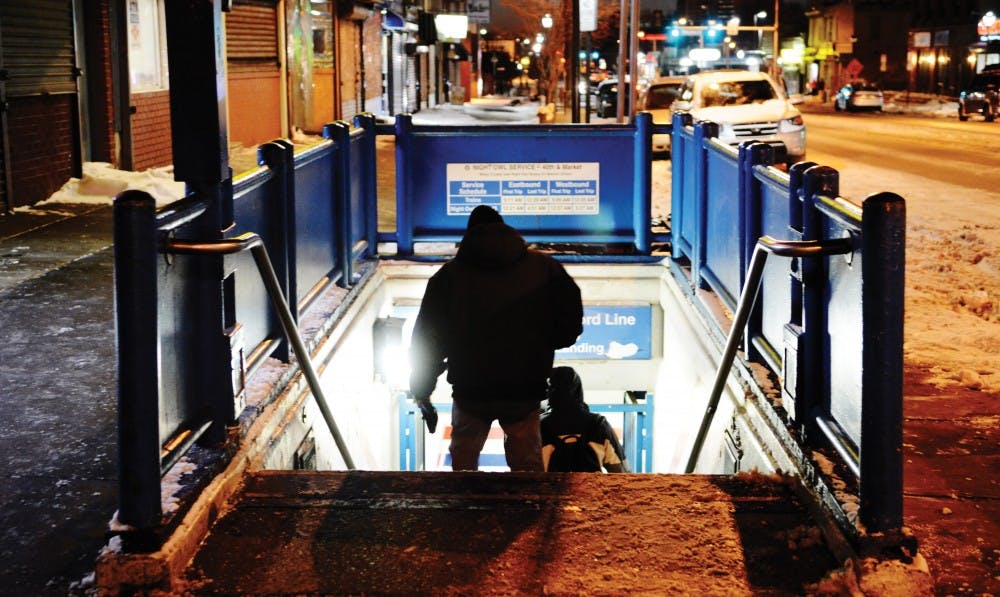
SEPTA is willing to pay the price to attract college students and young professionals to Philadelphia.
Despite the higher cost, SEPTA’s subways will continue running for 24 hours per day on weekends to encourage millennials to live in Philadelphia.
In June, SEPTA introduced the Night Owl subway service — which runs from midnight to 5 a.m. on the Market-Frankford and Broad Street lines — to replace the overnight bus service on Friday and Saturday nights. Though the subways cost $34,000 more than the buses each weekend, the Night Owl weekend trains have had around 60 percent more riders.
“We have to pay more to provide this service, but the rising numbers were so strong and consistent that it really makes sense to provide transportation that people want,” SEPTA spokesperson Jerri Williams said.
For SEPTA, the higher cost of the service is outweighed by the benefit of accommodating Philadelphia riders, especially younger riders. The momentum to extend the pilot program was largely driven by SEPTA’s Youth Advisory Council , which represents the interests of riders in their teens and early 20s.
“College students and people in this younger demographic prefer to take the subway over the bus when they’re out late,” said SEPTA YAC Executive Chair Jeff Kessler, a Wharton and Engineering junior . “Rather than taking a taxi or Uber, the train provides a fast, comfortable and affordable public transportation option that benefits the entire youth community.”
With more millennials coming to Philadelphia, overnight service not only accommodates this growing demographic, but also serves as “a factor when people are considering where they want to go to college and where they want to live,” Williams added.
From 2000 to 2014, Philadelphia’s young adult population increased by 78 percent, according to data from the federal American Community Survey.
“Philadelphia has changed,” Williams said, “so we had to consider changing as well by enhancing our services to make the city more competitive.”
“It’s a combination of people not leaving as often for the suburbs and some more people coming back,” PennDesign professor John Landis said. “Young people have been coming back into urban centers, and it is a significant national movement that is helping a lot of cities.”
Over half of millennials in the 10 largest U.S. cities would consider moving to another city if it offered better public transportation options, according to a survey released this past April.
“Subway trains are the mode of public transit that people prefer, and being able to provide that service at all hours will really benefit the entire youth community,” Kessler said.
Since millennials tend to go to restaurants, clubs and other businesses late on weekends, “Philadelphia businesses see this late-night transportation as an opportunity for them since people become more willing to travel throughout the city knowing they can get back on SEPTA’s service,” Kessler added.
The SEPTA Night Owl trains also improve the overall safety of the city. With up to two police officers on each overnight train, SEPTA “rarely gets reports of violent crime, and the underground stations make people feel more comfortable than they are when waiting on a street corner for a bus in the middle of the night,” Williams said.
“This overnight service adds to the general sense that Philadelphia is a convenient and safe place to live,” Landis said.
The Daily Pennsylvanian is an independent, student-run newspaper. Please consider making a donation to support the coverage that shapes the University. Your generosity ensures a future of strong journalism at Penn.
DonatePlease note All comments are eligible for publication in The Daily Pennsylvanian.







